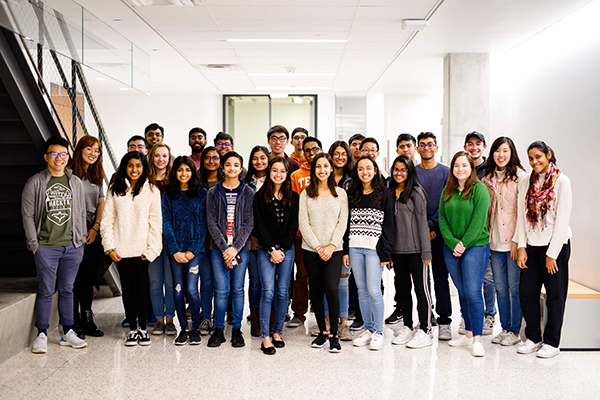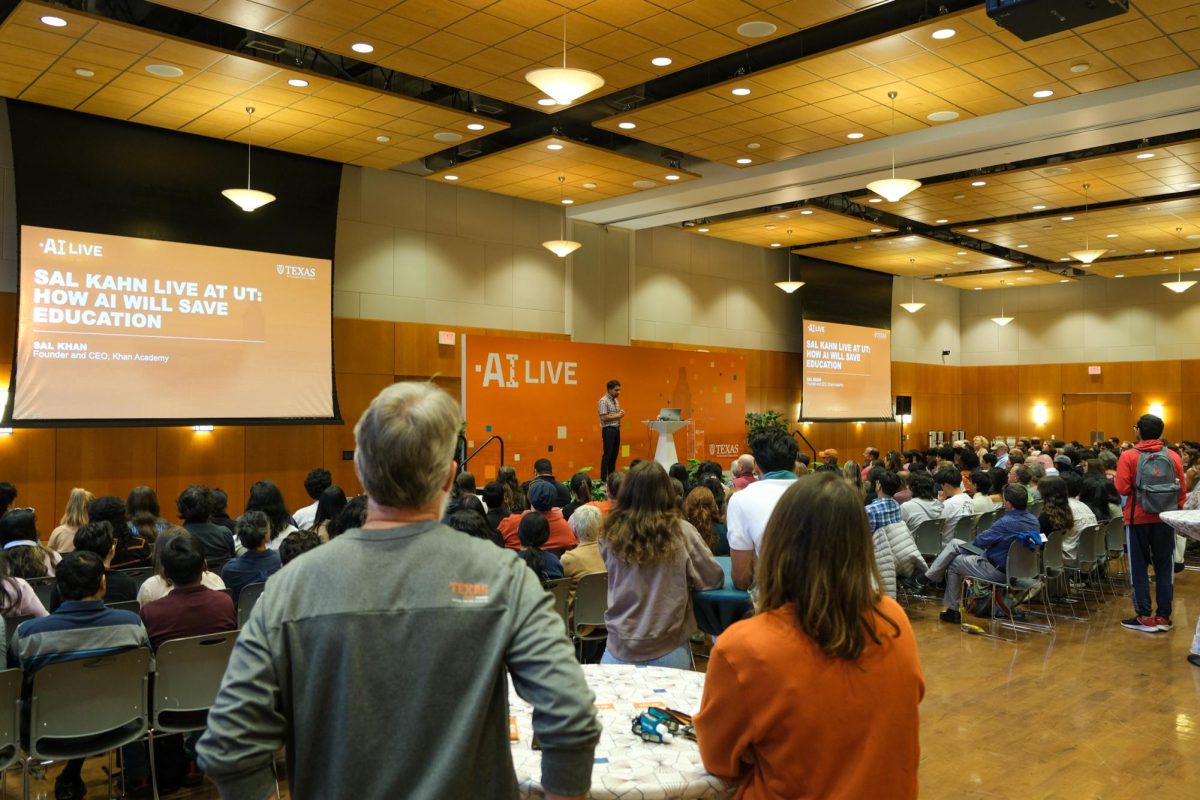Undergraduate students in Texas Engineering World Health launched a fundraiser to help create technologies to detect leukemia, seizures and heart diseases in developing countries.
Texas Engineering World Health is a student organization focused on creating “innovative medical technology for developing world countries,” according to their HornRaiser page. The fundraiser helps the group with admission and project costs for the Engineering World Health nationwide competition, which the club enters each year.
Biomedical engineering sophomore Nethra Venkatayogi said the club is submitting multiple projects to the competition, including technologies to detect leukemia, potential seizures and arrhythmia, a heart condition. Venkatayogi, a team lead for the arrhythmia detection project, said her group is focused on creating a device that records heartbeats and a phone application that detects abnormal heartbeats.
“We’re trying to find an alternative to electrocardiograms, which are really expensive, to detect arrhythmia,” Venkatayogi said. “They could indicate heart attacks or just heart disease. Since we are targeting developing nations, that kind of technology is really hard to get access to.”
The arrhythmia team has started work on their software, but plans to use the money from the fundraiser to create the heartbeat recording device.
“We’re going to make a hardware device that you can connect to a phone, Android or Apple, that can collect heartbeat sounds from any patient,” Venkatayogi said. “That will connect to our app, (which) can hopefully detect arrhythmia in a couple minutes or seconds.”
The engineering teams are also using funds they raised on HornRaiser this November to publish their findings.
Jennifer Zhou, a lead for the seizure detection team, said her team is using existing recordings of brain waves to create an algorithm to detect seizures.
“Our algorithm will try to predict when brain waves are possibly leading to a seizure,” biomedical engineering sophomore Zhou said. “Connected to this will be some sort of alarm system that will notify the user when they are about to have a seizure.”
Biomedical engineering sophomore Sabah Jamal’s team is working on a device that will capture blood smear images, as well as a corresponding software that will detect irregularities in blood cells to attempt to find leukemia.
“Looking at a blood smear image, the machine learning algorithm can figure out which cells don’t look like the rest,” Jamal said. “Let’s say you are in an area where you don’t have a person who has the expertise to look at these images; these tools can be helpful in that case.”
The team hopes to use a cellphone camera to capture the blood smear images, Jamal said. The fundraiser will help the leukemia team purchase computing power for their leukemia-detecting software, because it cannot be created on just a laptop, Jamal said.
Jamal said in developed countries the rates of mortality after five years of a pediatric leukemia diagnosis are much lower than in developing countries, creating the need for accessible technology.
“More deaths are associated with leukemia either because they were not detected earlier or because there was lack of proper treatment,” Jamal said. “We’re trying to come up with something that can help with early detection.


















